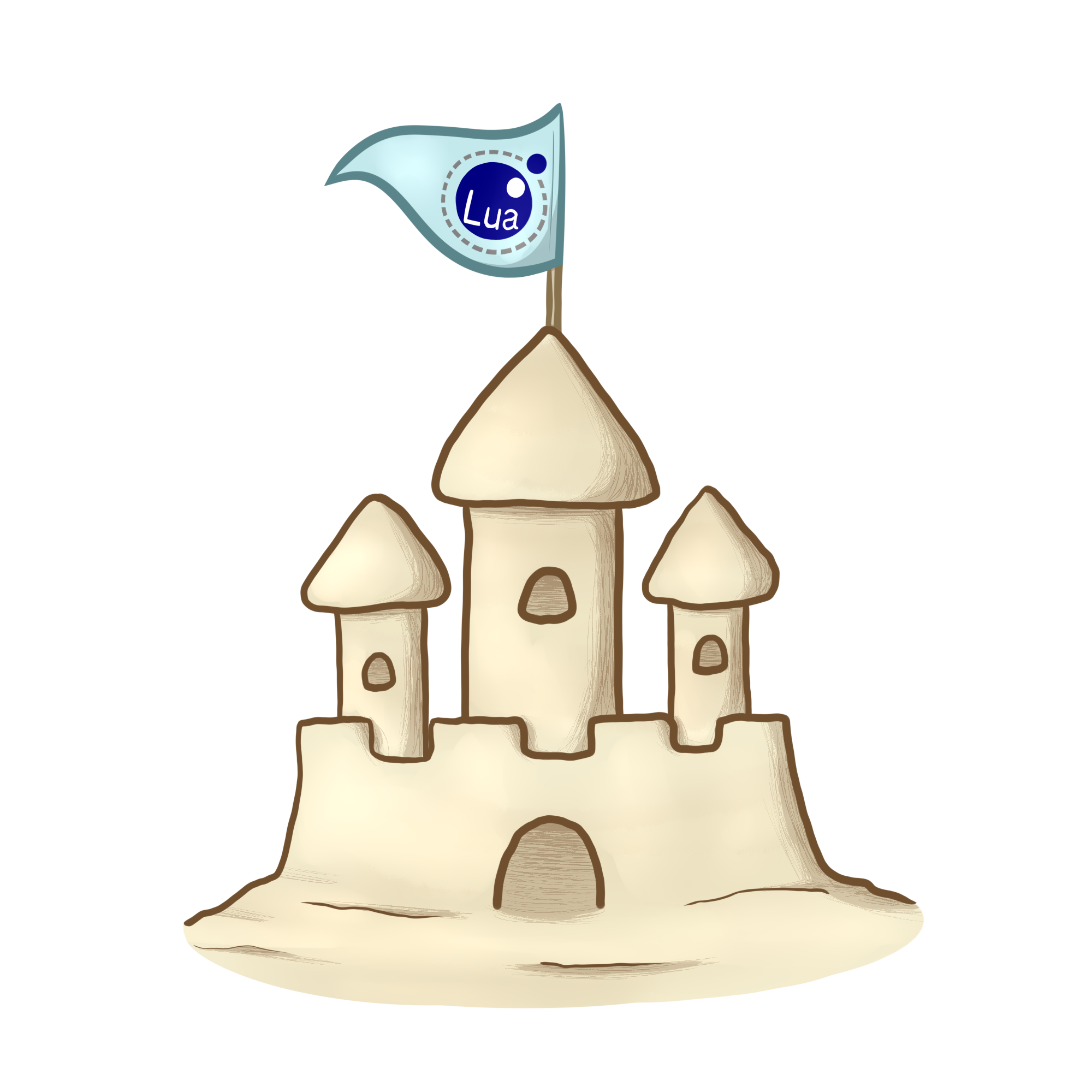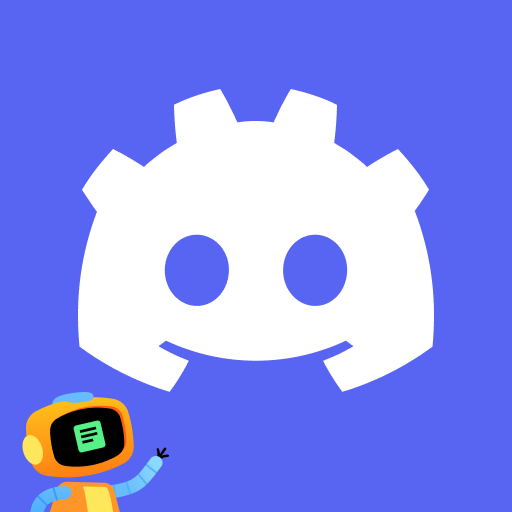This is an extension that adds support for creating lua modding or in game scripting in a sandboxed environment. We aim to provide API like the lua C API for GDScript. You can find full documentation and tutorials at: https://luaapi.weaselgames.info/latest/ Importantly this is NOT meant to be a replacement for or alternative to GDScript. This extension provides no functionality to program your game out of the box. This is built for the godot 4.1-stable release. But should work with newer minor versions.
Scripts
 4.1LuaAPI 4.1.x418vv2.1-beta8ScriptsBy: Trey2k
4.1LuaAPI 4.1.x418vv2.1-beta8ScriptsBy: Trey2k 4.0vv2.0.2-stableScripts
4.0vv2.0.2-stableScriptsThis is an extension that adds support for creating lua modding or in game scripting in a sandboxed environment. We aim to provide API like the lua C API for GDScript. You can find full documentation and tutorials at: https://luaapi.weaselgames.info/latest/ Importantly this is NOT meant to be a replacement for or alternative to GDScript. This extension provides no functionality to program your game out of the box. This is built for the godot 4.0.3-stable release. But should work with newer minor versions. Currently the LuaJIT version only supports Linux, Windows and MacOS
By: Trey2k 4.2LuaAPI 4.2.x418vv2.1-beta11Scripts
4.2LuaAPI 4.2.x418vv2.1-beta11ScriptsThis is an extension that adds support for creating lua modding or in game scripting in a sandboxed environment. We aim to provide API like the lua C API for GDScript. You can find full documentation and tutorials at: https://luaapi.weaselgames.info/latest/ Importantly this is NOT meant to be a replacement for or alternative to GDScript. This extension provides no functionality to program your game out of the box. This is built for the godot 4.2-stable release. But should work with newer minor versions.
By: Trey2k 4.2vv2.1-beta11Scripts
4.2vv2.1-beta11ScriptsThis is an extension that adds support for creating lua modding or in game scripting in a sandboxed environment. We aim to provide API like the lua C API for GDScript. You can find full documentation and tutorials at: https://luaapi.weaselgames.info/latest/ Importantly this is NOT meant to be a replacement for or alternative to GDScript. This extension provides no functionality to program your game out of the box. This is built for the godot 4.2-stable release. But should work with newer minor versions. Currently the LuaJIT version only supports Linux, Windows and MacOS
By: Trey2k 3.5Steam API400v1.3.1Scripts
3.5Steam API400v1.3.1ScriptsSteam Integration without rebuilding Godot. - Supports Windows, Linux & MacOS(x86_64/arm64). - Supports disabling the integration without needing to change code. - Supports the following APIs: # check is steam integration is working and enabled, useful if you publish to multiple stores Steam.is_init() # achievements Steam.set_achievement("gator_god") Steam.get_achievement("gator_god") Steam.clear_achievement("gator_god") # leaderboards Steam.set_leaderboard_score("High Scores", 1000) # Get the first 10 global high scores var top_10_global_scores = yield(Steam.get_leaderboard_scores("High Scores", 0, 10), "done") # Get just the current user's high score var players_score = yield(Steam.get_leaderboard_scores("High Scores", 0, 0, Steam.LeaderboardDataRequest.GlobalAroundUser), "done") # Get the current user's high score and the two scores infront and behind var player_rivals_score = yield(Steam.get_leaderboard_scores("High Scores", -1, 1, Steam.LeaderboardDataRequest.GlobalAroundUser), "done") # overlay Steam.friends.connect("game_overlay_activated", self, "_on_game_overlay_activated") Steam.friends.activate_game_overlay_to_web_page("https://steamcommunity.com/") Steam.friends.activate_game_overlay_to_store(1435470, Steam.OverlayToStoreFlag.AddToCart)
By: samsface 4.3v1.7Scripts
4.3v1.7ScriptsWFC (Wave Function Collapse) and generic constraint satisfaction problem solver implementation for Godot 4. Features: - Backtracking support. This addon implements backtracking, so it's possible to generate maps that are guaranteed to have no broken cells. - Multithreading. Generation of a 2d map using WFC algorithm can be split into few tasks. Some of the tasks can be executed concurrently. The algorithm is able to detect most of cases when it's impossible to split the task and fallback to single-threaded generation in such cases. - Learning from example. 2d WFC generator infers rules from an example of a valid map. - Supports different node types - TileMapLayer (including maps with hexagonal tilesets and scene tiles), GridMap, legacy TileMap nodes are still supported as well. Can be extended to support more node types. - Contains a generic implementation of a constraint satisfaction problem solver on top of which a WFC algorithm is built. This generic solver implementation can be reused for tasks different from WFC.
By: ab 4.4v0.2.4Scripts
4.4v0.2.4ScriptsSteam Sockets Multiplayer Peer for Godot 4 via GDExtension - No dependency with lobbies - Use steam networking low level (Sockets) - No compatible with channels (Will be added in the future) - No compatible with mesh peers This code was built on top of small experiments by Zennyth [https://github.com/Zennyth] , greenfox1505 [https://github.com/greenfox1505] and MichaelMacha [https://github.com/MichaelMacha]
By: expressobits- 4.1v2.2.0Scripts
Modular Character Controller for Godot 4. Includes FPS version with headbob and camera movement. (Walk, Crouch, Sprint, Swim and Fly Mode).
By: expressobits - 4.1v2.1.6Scripts
Modular Character Controller for Godot 4. Includes FPS version with headbob and camera movement. (Walk, Crouch, Sprint, Swim and Fly Mode). C# Base on https://godotengine.org/asset-library/asset/1567
By: expressobits  4.0v1.0.1Scripts
4.0v1.0.1ScriptsGodotPhoenixChannels is a GDScript and Godot Engine implementation for the Channels API of the Phoenix Framework. It enables Godot projects and games to connect to Phoenix Channels to leverage the connected massive real-time capabilities of Elixir and Phoenix backends. This is the client for Godot 4+.
By: alfredbaudisch 3.5v1.0.1Scripts
3.5v1.0.1ScriptsGodotPhoenixChannels is a GDScript and Godot Engine implementation for the Channels API of the Phoenix Framework. It enables Godot projects and games to connect to Phoenix Channels to leverage the connected massive real-time capabilities of Elixir and Phoenix backends. This is the client for Godot 3+.
By: alfredbaudisch 3.4v0.3.2Scripts
3.4v0.3.2ScriptsCollection of splash screens for Godot Engine. Easy to use, fast Installing, multiple resolutions.
By: vituan99 4.2v0.21.2Scripts
4.2v0.21.2ScriptsTemplate with main menu, options menu, pause menu, credits, and a scene loader. Created in collaboration with members of the Godot Wild Jam community. For usage information, visit the following: https://github.com/Maaack/Godot-Menus-Template/blob/main/README.md#usage
By: Maaack 4.1
4.1 4.1v2.2Scripts
4.1v2.2ScriptsRakugo Dialogue System is dialogue scripting system inspired by Ren’Py Script. It is part of Rakugo Project: https://rakugoteam.github.io
By: Jebedaia 4.0uuid229v3.0.0Scripts
4.0uuid229v3.0.0ScriptsThe uuid class is a GDScript 'static' class that provides a unique identifier generation for Godot Engine.
By: binogure 4.1v1.3.1Scripts
4.1v1.3.1ScriptsDiscord Game RPC Plugin for GDScript in Godot 4.1 or newer. It has Linux, Windows and partialy MacOS support. The GDScript code patterns are much easier then in other addons Make a complete rich presence with timestamps images info, Invites and much more.
By: vaporvee 3.4v1.1.2Scripts
3.4v1.1.2ScriptsContainer script that manages docking/tiling UI panels. Panels are composed of tabs that can be dragged around and dropped to split another panel or compose its tabs. Layout information is stored in Resource objects, so they can be saved/loaded from disk easily. This plugin also offers a replica of the Container layout to be edited directly in the inspector.
By: gilzoide